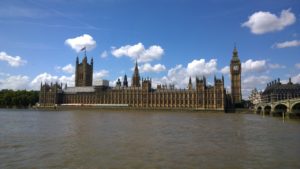coronavirus
Emergency bill to strengthen coronavirus (COVID-19) response plans
Emergency measures to give ministers powers to take the right action at the right time to respond effectively to the progress of the coronavirus outbreak will be introduced to Parliament this week, the Health and Social Care Secretary Matt Hancock has said.
 The measures in the coronavirus bill are temporary, proportionate to the threat, will only be used when strictly necessary and will be in place for as long as required to respond to the situation.
The measures in the coronavirus bill are temporary, proportionate to the threat, will only be used when strictly necessary and will be in place for as long as required to respond to the situation.
They are intended to protect life and the nation’s public health and ensure NHS and social care staff are supported to deal with significant extra pressure on the health system.
They fall into five key categories:
- Containing and slowing the virus;
- Easing legislative and regulatory requirements;
- Enhancing capacity and the flexible deployment of staff across essential services;
- Managing the deceased in a dignified way;
- Supporting and protecting the public to do the right thing and follow public health advice.
To ensure the NHS and adult social care have the additional staff capacity they need to respond to increasing demands on services during the outbreak, the powers enabled by the bill will allow recently retired NHS staff and social workers to return to work without any negative repercussions to their pensions.
NHS staff will also be covered by a state-backed insurance scheme to ensure they can care for patients if, for example, they are moving outside their day-to-day duties while making use of their skills and training.
Paperwork and administrative requirements will be reduced to help doctors discharge patients more quickly when clinically appropriate, to free up hospital space for those who are very ill and enable clinicians to focus on delivering care.
Volunteers will have extra employment safeguards, allowing them to pause their main jobs for up to four weeks while they help care for patients in the health and care system, and will receive a flat rate of compensation to mitigate lost earnings and expenses. This could benefit more than three million people who already volunteer in health and care settings and bolster the NHS’s capacity to respond to the virus.
Changes to councils’ duties under the Care Act will enable them to prioritise people with the greatest care needs and make the best use of the adult social care workforce.
Other measures in the legislation include:
- Allowing police and immigration officers to support and enforce public health measures, including powers to detain people and put them in appropriate isolation facilities if necessary to protect public health
- Making arrangements for statutory sick pay for those self-isolating without symptoms from day one
- Allowing small businesses to reclaim statutory sick pay payments from HMRC
- Allowing more phone or video hearings for court cases to stop the spread of the virus in courts
- Enabling Border Force to temporarily suspend operations at airports or transport hubs if there are insufficient resources to maintain border security.
The bill allows the four UK governments to switch on these new powers when they are needed and, crucially, to switch them off again once they are no longer necessary, based on the advice of the four Chief Medical Officers.
The bill builds on the Treasury’s recent investment of £12 billion to support public services, people and businesses through the disruption caused by COVID-19 in the 2020 Budget. It follows considerable action from the government to control the epidemic, including a nationwide public health campaign and a cross-government ‘war room’ of communications experts and scientists.
What the coronavirus bill will do
This paper sets out, subject to final approvals, the elements of the new legislation and why they are needed.
Emergency bill to strengthen coronavirus (COVID-19) response plans
Emergency measures to give ministers powers to take the right action at the right time to respond effectively to the progress of the coronavirus outbreak will be introduced to Parliament this week, the Health and Social Care Secretary Matt Hancock has said.
Barbour EHS
SHP - Health and Safety News, Legislation, PPE, CPD and Resources Related Topics
NHS trust fined £480k after employee found unconscious in manhole
Two thirds of hospitals contain asbestos – report finds
The obstacles to staff safety and wellbeing in the NHS

 The measures in the
The measures in the